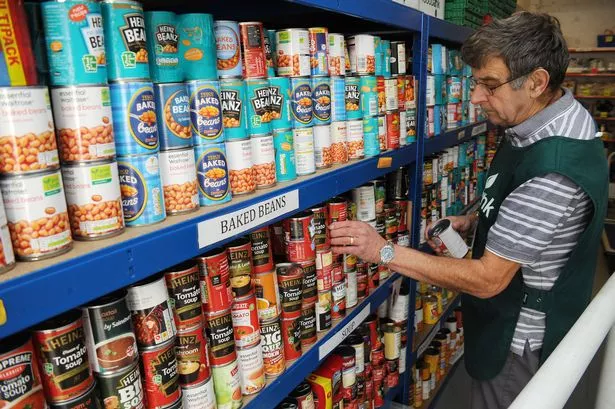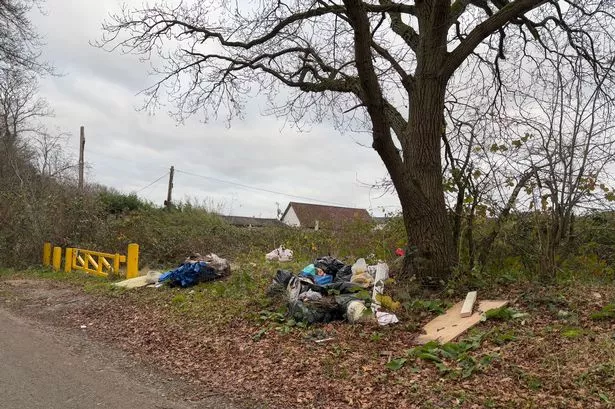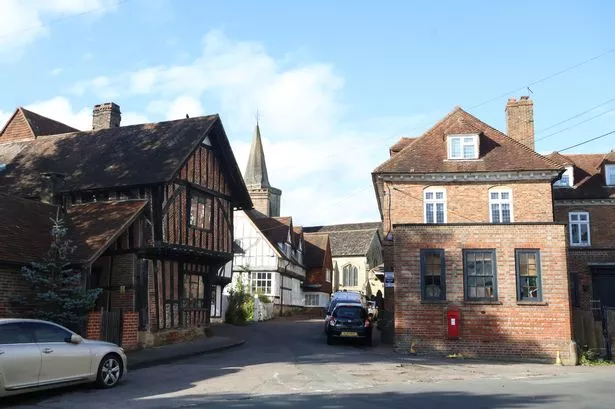Inequality in Surrey has become so vast that someone living on one side of the M25 is expected to live in good health for nine years longer than someone on the other side, according to data.
Surrey County Council has come up with a strategy to tackle poverty, recommended by cabinet last week, which looks at advocating the use of a living wage specific to Surrey.
Council leader Tim Oliver said: "It [the cost] is the same as living in London really, without the uplift, so it is an ambition to make it more affordable for people to live and work here, because we lose so many people to London."
Read more: "You cannot live on benefits, you just exist": The other side to the story of prosperous Surrey
The proposed strategy follows research showing that substantially more Surrey families have fallen into poverty as a result of the pandemic, with parents skipping meals so they can feed their kids.
Speaking in the cabinet meeting, Clare Curran, cabinet member for children and families, said: "We know that there are more residents below the poverty line and in particular more children in Surrey living in families who are classified as living in poverty.
"It seems almost unthinkable in 2022."
What does the data say?
SurreyLive email updates: We bring the stories to you

Signing up to the SurreyLive newsletter means you'll receive our daily news email.
It couldn't be simpler and it takes seconds - simply press here, enter your email address and follow the instructions.
You can also enter your address at the top of this page in the box below the picture on most desktop and mobile platforms.
Changed your mind? There's an 'unsubscribe' button at the bottom of every newsletter we send out.
A woman living in the Elmbridge ward of Oxshott and Stoke D'Abernon has a healthy life expectancy of 73.9 years, compared to 65.0 for a woman living in the neighbouring Mole Valley ward of Leatherhead North.
Some parts of the county vary by as much as 13 years - 76.3 years for the Elmbridge ward of Hinchley Wood and Weston Green compared to 63.7 in Spelthorne's Stanwell North.
The percentage of children claiming free school meals is about four times as high in Stanwell North - 19.3 per cent compared to 4.8 per cent in Hinchley Wood and Weston Green.
Following Covid job losses and furlough, the level of need and eligibility for free school meals in Surrey has increased by 26 per cent, and the number of Universal Credit claimants rose by a staggering 235 per cent from March 2020 to August 2021.
The Trussell Trust, which covers two thirds of Surrey's foodbanks, had to add an additional six distribution centres to the existing 25 during the pandemic because demand in many places was two or even three times greater than the previous year, especially in areas previously thought of as ‘affluent’.
Cllr Curran added: "We are seeing families who have been able to manage quite well until now, coming forward seeking assistance, finding themselves unfamiliar with the system and seeing how hard it can be to navigate."
More than a third (36 per cent) of respondents in a community impact assessment in 2020 said coronavirus had a negative impact on their household income, but at the same time nearly one in five (19 per cent) said the impact on theirs had been positive.
Even before the virus exacerbated the divide, poverty generally – and child poverty in particular – had increased in every Surrey district and borough for the past five years.
Households in relative poverty are defined as those on an income of less than
60 per cent of the median national income.
In 2019, just over 10.7 per cent of all households in Surrey - including nearly 20,000 children - were experiencing relative poverty, with an annual income of less than £20,000.
This ranged from just below five per cent in Epsom and Ewell to just below 12 per cent in Reigate and Banstead.
This affects health, with long-term conditions like diabetes, obesity, chronic obstructive pulmonary disease and arthritis about twice as common among people on lower incomes aged between 45 to 64, according to the council's researchers.
'Pockets of deprivation in Surrey'
Councillor Rebecca Paul (Con, Tadworth, Walton & Kingswood), Surrey's deputy cabinet member for levelling-up, said in the council meeting the authority's proposed strategy was "innovative".
"Although Surrey isn't at first glance generally associated with poverty, when you look a little harder you do see pockets of deprivation throughout where people are genuinely struggling to make ends meet," she said.
"Unlike other poverty strategies, this seeks to address the underlying root causes of poverty, not just treat the symptoms. That is something that's really challenging to do."
It will consider how it can create more jobs and provide work experience, using its position as an employer and procurer of services from local suppliers.
Ensuring reliable and inexpensive public transport would facilitate access to education and work.
The authority has used government funding from the Contain Outbreak Management Fund to establish housing cabins that can be accessed by housing teams countywide and wants to coordinate more with the district and borough councils to share intelligence on homelessness.
Other ideas involve free wi-fi in the community, CV workshops and tailored advice on skills acquisition and job seeking.
Download the SurreyLive app for a better reader experience and to get news from the areas you care most about. Download it via the App Store for iOS or Google Play for Android.






















